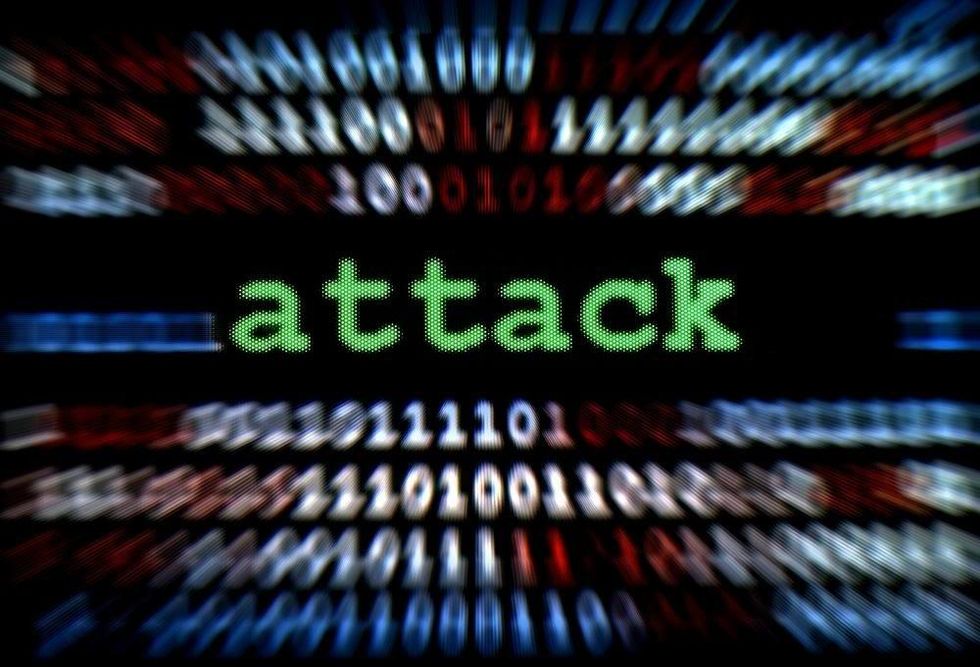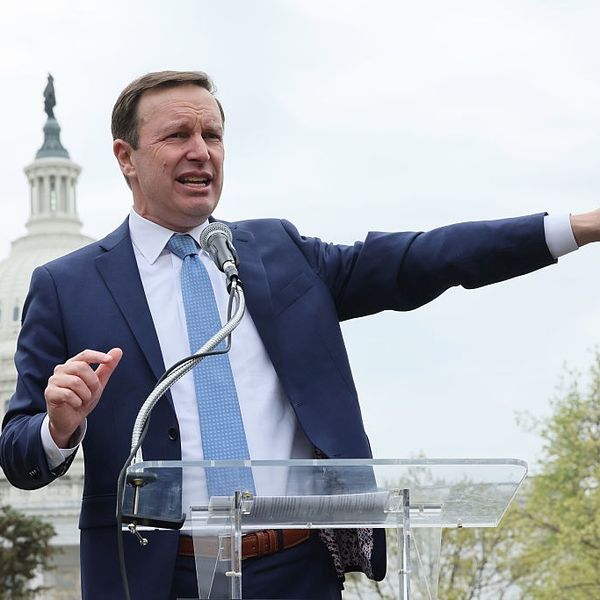The Dangers of Obama's Cyber War Power Grab
When our founders were drafting the Constitution, they went out of their way to give warmaking powers to Congress, not the President.
They understood that if the President could make war on his own, he'd be no different than a king.
And they also understood, as James Madison said, that such power "would be too much temptation" for one man.
And so they vested that power in Congress.
When our founders were drafting the Constitution, they went out of their way to give

They understood that if the President could make war on his own, he'd be no different than a king.
And they also understood, as James Madison said, that such power "would be too much temptation" for one man.
And so they vested that power in Congress.
But since World War II, one President after another has usurped that power.
The latest usurper is President Obama, who did so in Libya, and with drones, and now is prepared to do so in cyberspace.
According to The New York Times, the Obama Administration has concluded that the President has the authority to launch preemptive cyberattacks.
This is a very dangerous, and very undemocratic power grab.
There are no checks or balances when the President, alone, decides when to engage in an act of war.
And this new aggressive stance will lead to a cyber arms race. The United States has evidently already used cyber weapons against Iran, and so many other countries will assume that cyber warfare is an acceptable tool and will try to use it themselves.
Most troubling, U.S. cybersupremacy--and that is Pentagon doctrine--will also raise fears among nuclear powers like Russia, China, and North Korea that the United States may use a cyberattack as the opening move in a nuclear attack.
For if the United States can knock out the command and control structure of an enemy's nuclear arsenal, it can then launch an all-out nuclear attack on that enemy with impunity. This would make such nuclear powers more ready to launch their nuclear weapons preemptively for fear that they would be rendered useless. So we've just moved a little closer to midnight.
Now, I don't think Obama would use cyberwafare as a first strike in a nuclear war. But our adversaries may not be so sure, either about Obama or his successors.
They, too, worry about the temptations of a President.
An Urgent Message From Our Co-Founder
Dear Common Dreams reader, The U.S. is on a fast track to authoritarianism like nothing I've ever seen. Meanwhile, corporate news outlets are utterly capitulating to Trump, twisting their coverage to avoid drawing his ire while lining up to stuff cash in his pockets. That's why I believe that Common Dreams is doing the best and most consequential reporting that we've ever done. Our small but mighty team is a progressive reporting powerhouse, covering the news every day that the corporate media never will. Our mission has always been simple: To inform. To inspire. And to ignite change for the common good. Now here's the key piece that I want all our readers to understand: None of this would be possible without your financial support. That's not just some fundraising cliche. It's the absolute and literal truth. We don't accept corporate advertising and never will. We don't have a paywall because we don't think people should be blocked from critical news based on their ability to pay. Everything we do is funded by the donations of readers like you. Will you donate now to help power the nonprofit, independent reporting of Common Dreams? Thank you for being a vital member of our community. Together, we can keep independent journalism alive when it’s needed most. - Craig Brown, Co-founder |
When our founders were drafting the Constitution, they went out of their way to give

They understood that if the President could make war on his own, he'd be no different than a king.
And they also understood, as James Madison said, that such power "would be too much temptation" for one man.
And so they vested that power in Congress.
But since World War II, one President after another has usurped that power.
The latest usurper is President Obama, who did so in Libya, and with drones, and now is prepared to do so in cyberspace.
According to The New York Times, the Obama Administration has concluded that the President has the authority to launch preemptive cyberattacks.
This is a very dangerous, and very undemocratic power grab.
There are no checks or balances when the President, alone, decides when to engage in an act of war.
And this new aggressive stance will lead to a cyber arms race. The United States has evidently already used cyber weapons against Iran, and so many other countries will assume that cyber warfare is an acceptable tool and will try to use it themselves.
Most troubling, U.S. cybersupremacy--and that is Pentagon doctrine--will also raise fears among nuclear powers like Russia, China, and North Korea that the United States may use a cyberattack as the opening move in a nuclear attack.
For if the United States can knock out the command and control structure of an enemy's nuclear arsenal, it can then launch an all-out nuclear attack on that enemy with impunity. This would make such nuclear powers more ready to launch their nuclear weapons preemptively for fear that they would be rendered useless. So we've just moved a little closer to midnight.
Now, I don't think Obama would use cyberwafare as a first strike in a nuclear war. But our adversaries may not be so sure, either about Obama or his successors.
They, too, worry about the temptations of a President.
When our founders were drafting the Constitution, they went out of their way to give

They understood that if the President could make war on his own, he'd be no different than a king.
And they also understood, as James Madison said, that such power "would be too much temptation" for one man.
And so they vested that power in Congress.
But since World War II, one President after another has usurped that power.
The latest usurper is President Obama, who did so in Libya, and with drones, and now is prepared to do so in cyberspace.
According to The New York Times, the Obama Administration has concluded that the President has the authority to launch preemptive cyberattacks.
This is a very dangerous, and very undemocratic power grab.
There are no checks or balances when the President, alone, decides when to engage in an act of war.
And this new aggressive stance will lead to a cyber arms race. The United States has evidently already used cyber weapons against Iran, and so many other countries will assume that cyber warfare is an acceptable tool and will try to use it themselves.
Most troubling, U.S. cybersupremacy--and that is Pentagon doctrine--will also raise fears among nuclear powers like Russia, China, and North Korea that the United States may use a cyberattack as the opening move in a nuclear attack.
For if the United States can knock out the command and control structure of an enemy's nuclear arsenal, it can then launch an all-out nuclear attack on that enemy with impunity. This would make such nuclear powers more ready to launch their nuclear weapons preemptively for fear that they would be rendered useless. So we've just moved a little closer to midnight.
Now, I don't think Obama would use cyberwafare as a first strike in a nuclear war. But our adversaries may not be so sure, either about Obama or his successors.
They, too, worry about the temptations of a President.

